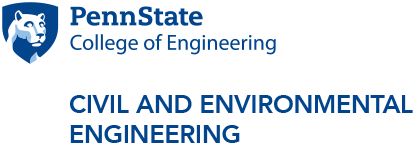Key Drivers of Carbon Fluxes in Watersheds: Hydro-biogeochemistry, Weathering, and Extreme Events
Abstract:
Watersheds encompass a broad range of hydrological and biogeochemical processes that govern carbon fluxes—from precipitation and groundwater flow to soil respiration and chemical weathering. While these processes are often difficult to measure directly, models grounded by field observations serve as valuable tools to help us understand the key drivers of carbon fluxes in watersheds and how they contribute to the global carbon cycle.
The first talk will demonstrate the use of a watershed-scale reactive transport model to understand how different hydro-biogeochemical processes, especially those at shallow and deep subsurface depths, shape the lateral fluxes of dissolved carbon from land to streams. This work highlights the distinct influences of biogeochemical structure and hydrological flow path partitioning on common export patterns for dissolved organic and inorganic carbon across the continental United States. The second talk will demonstrate how novel data mining techniques and comprehensive reactive transport models can provide a deeper understanding of shale weathering and its impact on carbon fluxes from hilltops to rivers. The talk will end with opportunities for carbon management via enhanced rock weathering.
Bio:
Bryn Stewart is the Foster and Coco Stanback Postdoctoral Fellow and Research Associate in Environmental Science and Engineering at the California Institute of Technology (Caltech). Bryn earned a PhD in Environmental Engineering and Biogeochemistry from the Pennsylvania State University, with a primary research focus on using field observations and watershed-scale reactive transport modeling to understand the influences of climate and Critical Zone structure on stream water quality dynamics. At Caltech, Bryn is currently exploring the role of vadose zone processes in shaping soil biogeochemical dynamics across scales.
Bhavna Arora is a Staff Scientist and the Carbon Removal and Mineralization Lead in the Energy Geosciences Division at Lawrence Berkeley National Laboratory. She received her Ph.D. from the interdisciplinary Water Management and Hydrological Sciences program at Texas A&M University. Her research primarily involves reactive transport modelling to provide a comprehensive and predictive understanding of biogeochemical processes in various types of natural and managed ecosystems and at different space-time scales. She specializes in utilizing a combination of high-fidelity numerical models, uncertainty analysis and data mining techniques to test new concepts and hypotheses and in applying these tools to provide a scientific basis for solving diverse issues in the earth and environmental sciences such as water resources management, CO2 sequestration, and sustainable agriculture.
Event Contact: Li Li



